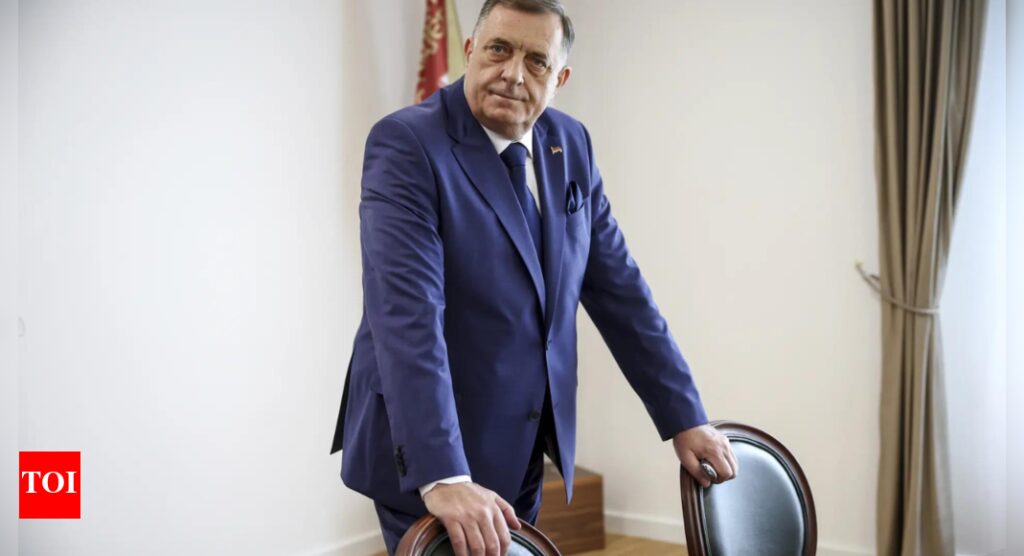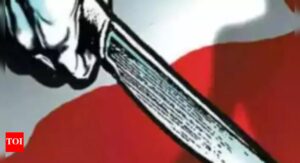Bosnian Serb leader back in Sarajevo after arrest attempt

SARAJEVO: Bosnian Serb leader Milorad Dodik, who is wanted on secession charges, returned to the Serb portion of the capital on Thursday, hours after federal police tried to arrest him but backed down for fear of a conflict.
Dodik, the president of the Bosnian Serb statelet, is wanted by Bosnia’s central judiciary after a series of secessionist moves but continues to defy an arrest warrant issued in mid-March. Since the end of its ethnic war in the 1990s, Bosnia remains split into two highly autonomous halves — the Serbs’ Republika Srpska (RS) and a Muslim-Croat Federation — linked by a weak central government.
On Wednesday, federal police officers tried to enter an official building in East Sarajevo, a Serb-controlled area on the east of the Bosnian capital, to arrest Dodik but were blocked by Bosnian Serb interior ministry forces.
“Our colleagues from the RS ministry simply weren’t cooperative or, rather, they believed that it shouldn’t be carried out, that it could perhaps lead to some conflict,” said Jelena Miovcic, spokeswoman for the federal police force (SIPA).
“We simply assessed that proceeding might cause bigger problems… In the end, we didn’t go in armed… It was meant to be handled in a civilised way, to explain things clearly — that we are legally obliged to enforce the court order from Bosnia and Herzegovina,” she told AFP.
Dodik accused the federal police at an improvised press conference on Wednesday night of “violating RS laws”, referring to RS parliament legislation banning the federal police and judiciary from the statelet. He reappeared in East Sarajevo on Thursday, attending the inauguration of a university building amid a heavier than usual police presence.
Dodik, 66, has repeatedly refused to follow rulings from the international high representative who oversees the Bosnian peace deal, Christian Schmidt. Schmidt on Thursday announced the immediate suspension of all government aid to Dodik’s party.
The court of Bosnia and Herzegovina convicted Dodik in February, sentencing him to one year in prison and banning him from holding public office for six years. Dodik rejected the ruling and, in response, barred the federal police and judiciary from operating in Republika Srpska.








